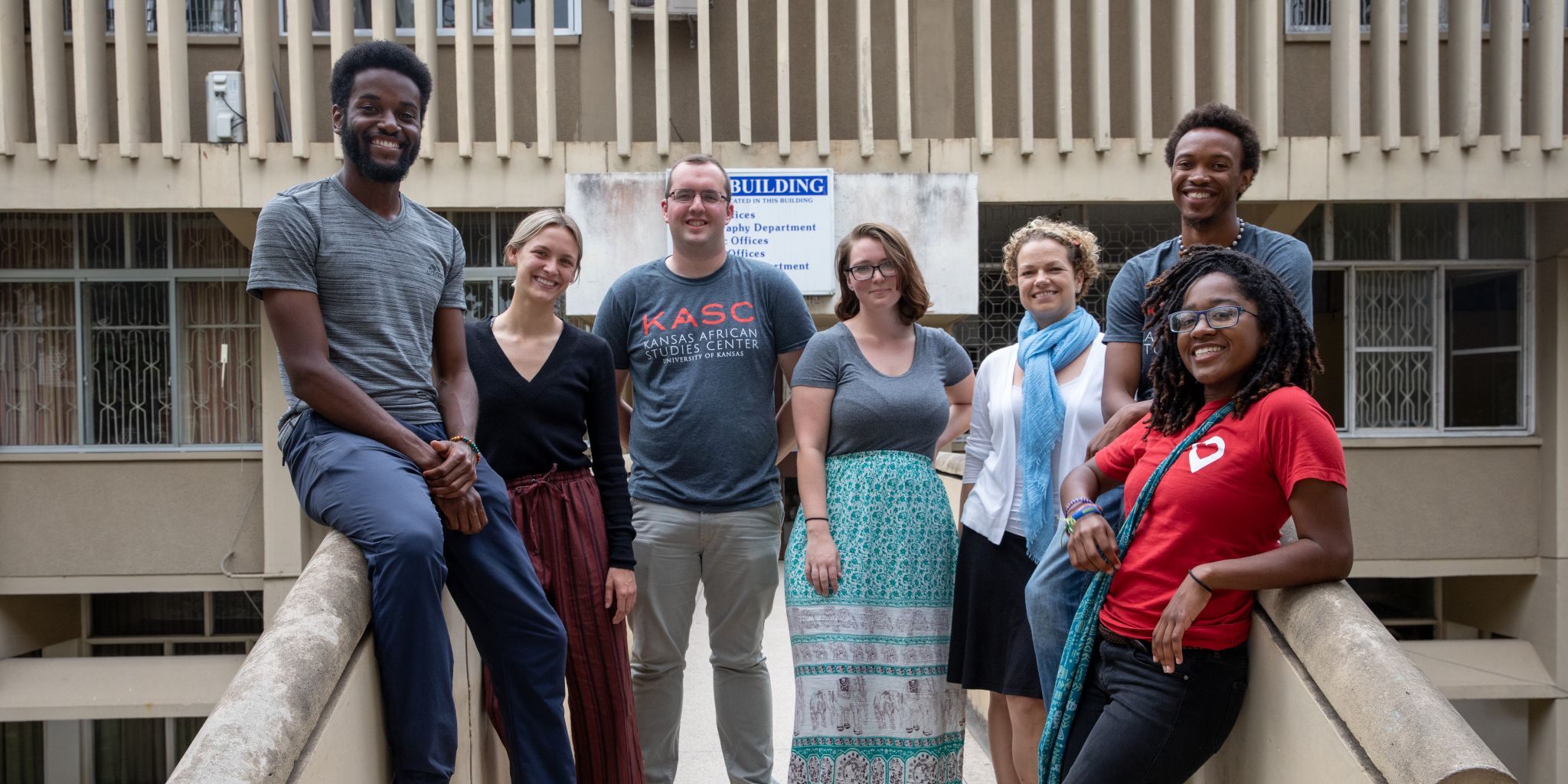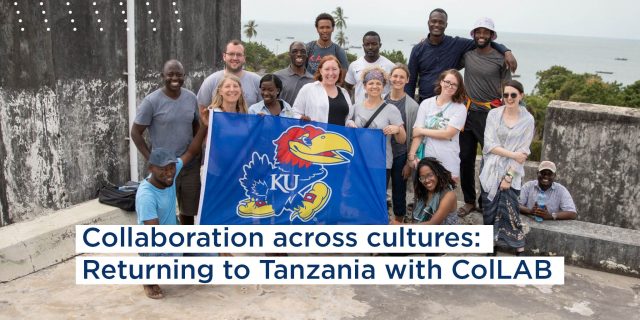
Soaring palm trees. Cool ocean breezes. An East African metropolis. These aren’t images you’d normally associate with the University of Kansas. But for 10 Jayhawks this summer, these tropical trappings made for the perfect KU classroom.
In July 2019, those Jayhawks — seven students and three faculty members — participated in a field school in Tanzania’s largest city, Dar es Salaam. The field school was part of the Kansas African Studies Center’s research program, ColLAB: Bridging East Africa’s Health Divides, which brings together KU students and faculty from different fields and backgrounds to study questions of global health and development.
“The program is an opportunity for students of all levels to take a big step toward living, working, and conducting research in an African context,” says Katie Rhine, ColLAB co-director and associate professor of African & African-American studies and geography & atmospheric science.
Part study abroad and part experiential learning, the field school puts months and years of students’ Swahili language learning, African studies expertise, and research skills to the test.
From Mufindi to Dar
Coastal and boasting more than six million inhabitants, Dar es Salaam couldn’t be more different than the quiet, rural highlands of Mufindi, the setting of the first field school in 2018.
In planning for 2019, Rhine and her fellow ColLAB co-directors, Elizabeth MacGonagle, associate professor of African history, and Dr. Peter Ojiambo, associate professor of African & African-American studies, decided to transplant the field school to the city. Also new: Scholars from the University of Dar es Salaam would work and learn alongside the Kansas students in the field and at lectures and seminars at the university.
Altogether, the 2019 field school would represent an even fuller experience than 2018, offering a trifecta of field research assignments, visits to local non-governmental organizations, and trips to historically significant sites around the region.
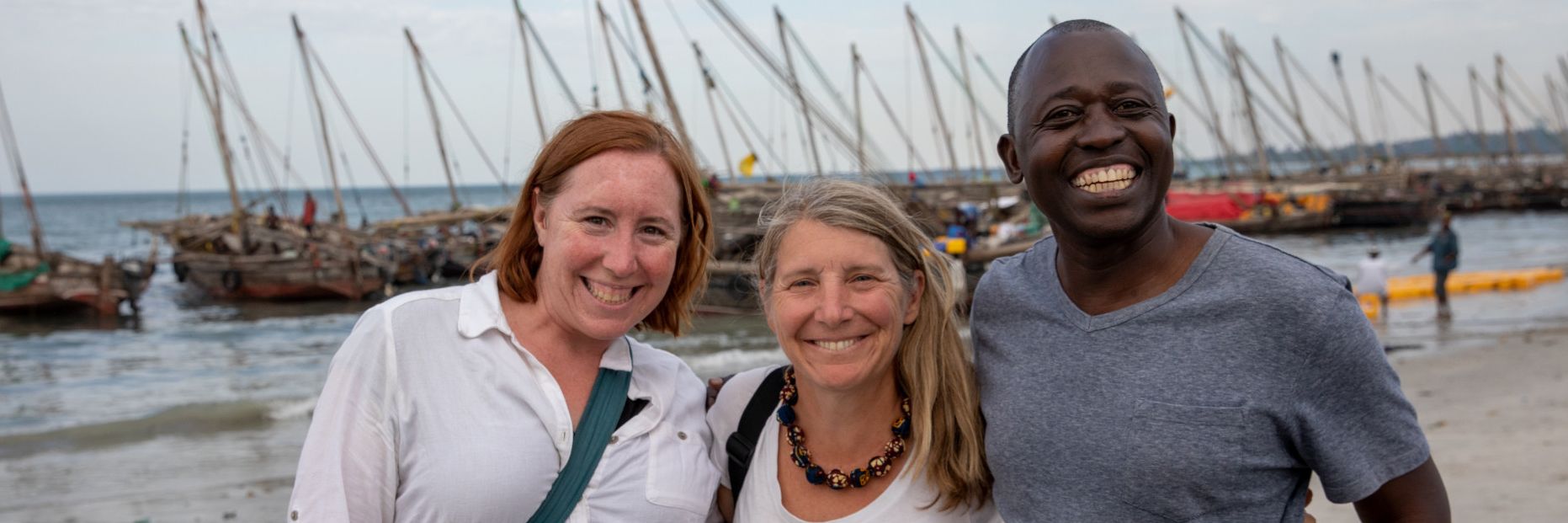
Far afield in the field
The 9,000-mile journey from Kansas to Dar was a long one, but the ColLAB students enjoyed little time to rest. In a formidable first day in the field, the KU and UDSM students were paired off into teams and sent off into different areas of the city. Each team was assigned to collect data related to broad research topics, such as public transport and health and sanitation.
The project, an example of ethnographic research, encapsulated the field school’s objectives. Kansas students engaged with their UDSM counterparts, interacted with local Tanzanians, and conducted field research in incisive, sometimes unfamiliar ways — experiences impossible to replicate in a classroom environment.
A campus on a hill
Between field trips, the students spent time at the UDSM’s hilltop campus. With its midcentury breezeways and soaring palm trees, UDSM was a scenic, low-key locale for seminars and lectures.
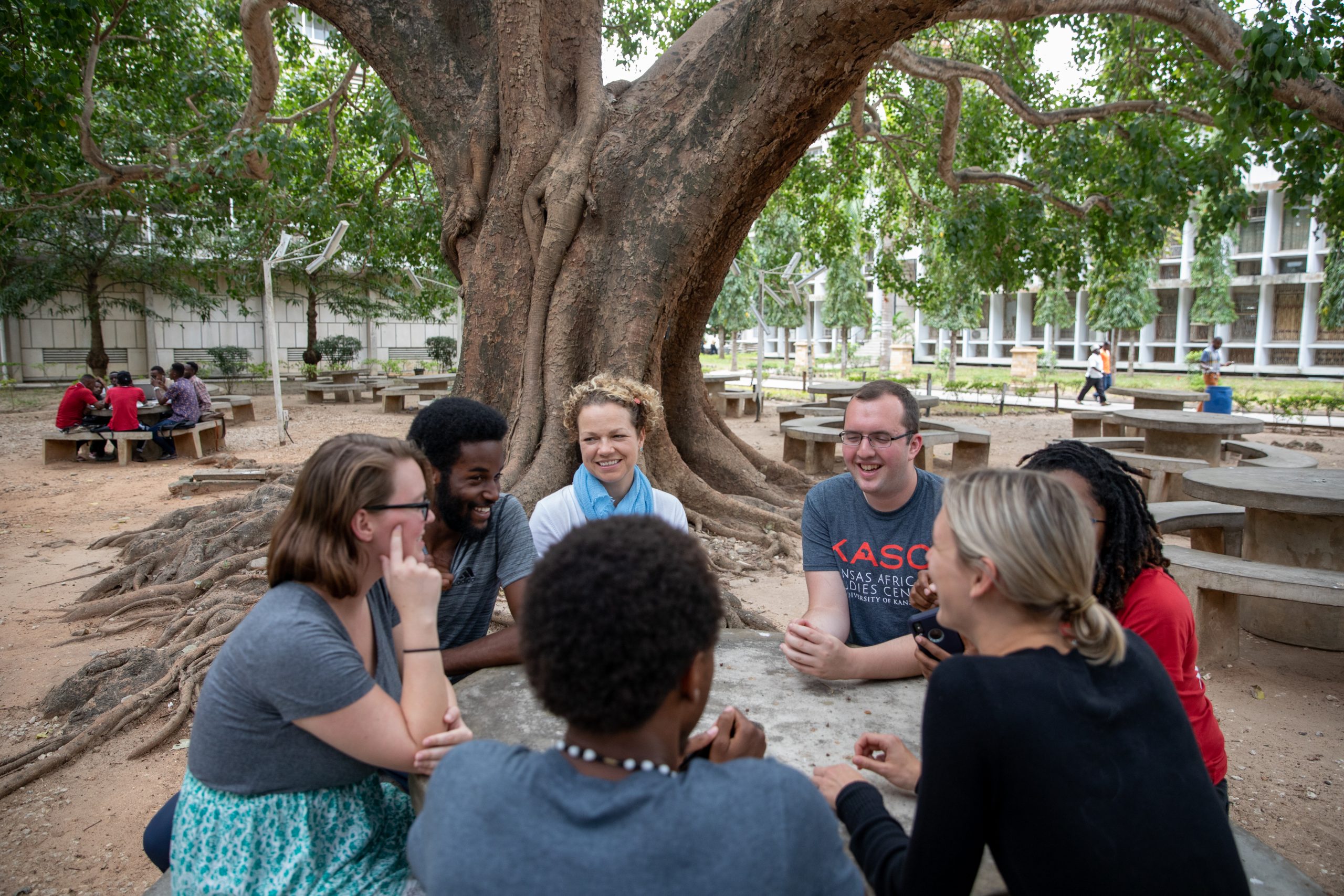
“It’s a beautiful campus,” says Eric Splavec, who graduated in 2019 with a bachelor’s in political science. “The amount of history and character there — it reminded me a lot of KU.”
In the classrooms, the students and faculty shared each other’s markedly different learning and teaching styles. “In the U.S., we believe in participatory exercises and engagement and conversation. In Tanzania, they’re going to give you an hour-long lecture, and you need to listen,” says Katie Rhine.
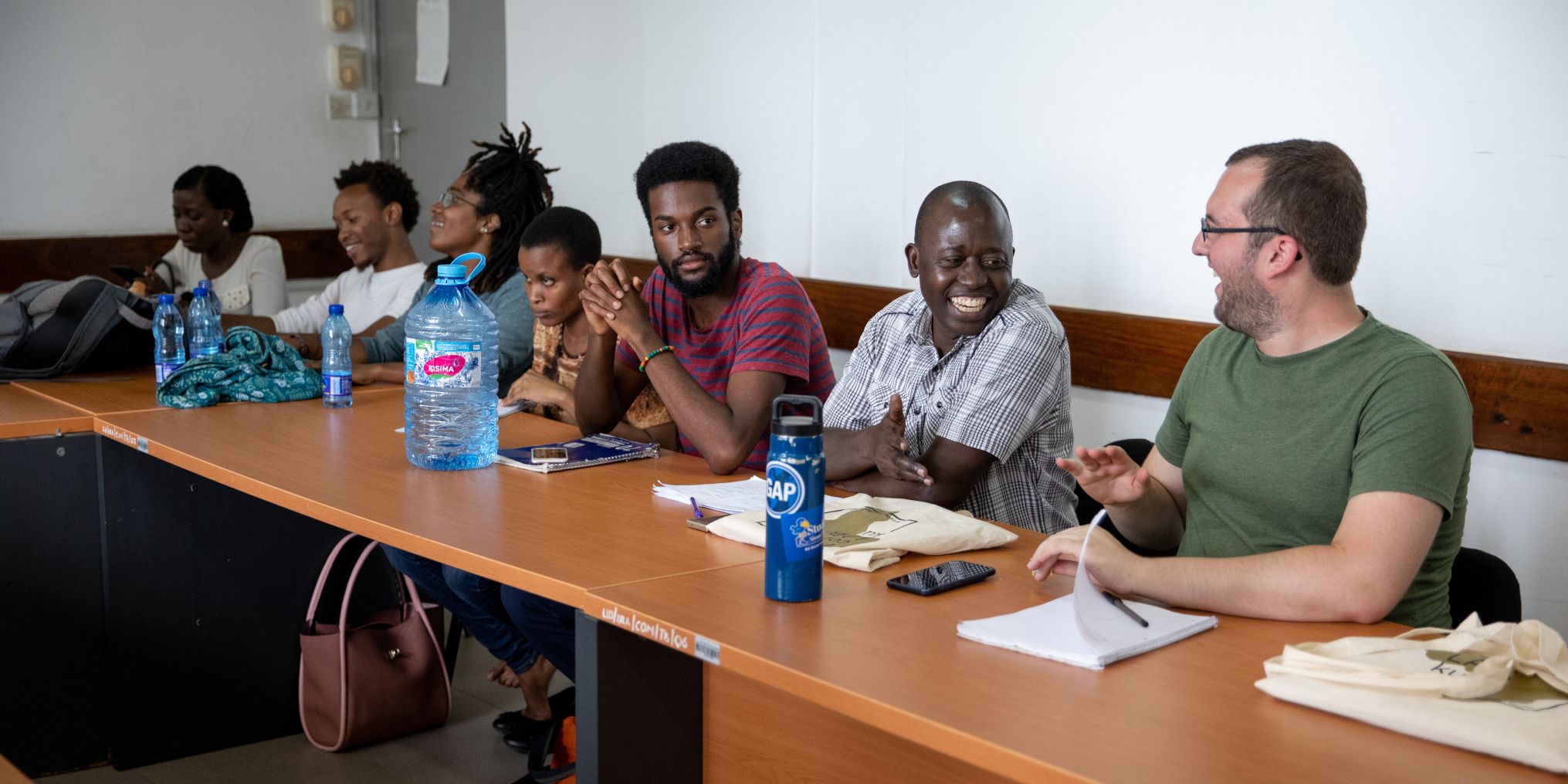
Living history
Effective humanistic research relies on an understanding of a culture’s past, and how it has shaped societies today. With that in mind, the field school visited several historically significant sites in or near the city: The National Museum of Dar es Salaam; the Pugu Hills Forest Reserve, site of what is considered one of the world’s oldest forests; and Bagamoyo, a former hub of the slave trade and capital of Germany-occupied East Africa.
“When it comes to the slave trade and the history of Dar, there’s so much that affects the living conditions and demographics today,” said Tyler Cargill, a senior studying chemical engineering. These histories figured much more prominently into day-to-day life than he expected.
Students witnessed those effects in a walking tour of the city. Its straining infrastructure and crowded skylines revealed a city fighting forward from a patchwork history of colonialism. Less than six decades after achieving independence, many of Dar es Salaam’s inhabitants still remember the country under colonial rule.
Engaging with Dar’s disadvantaged
East African non-governmental organizations, or NGOs, are a major focus of ColLAB’s research efforts. This summer, the program partnered with two nonprofit NGOs: Child in the Sun, a faith-based orphanage funded by the Catholic archdiocese; and PEDDEREF, or People with Drugs Dependence Relief Foundation, a sober house for men and women who suffer from addiction.
Child in the Sun takes in Dar’s “street children” — homeless, frequently orphaned boys who were found stealing, begging, or participating in delinquent activities. Rhine draws connections between the organization’s work and problematic missionary efforts during the slave trade. “Our students saw those parallels when we went to Bagamoyo, where we toured a number of spaces that were rehabilitation centers for former slaves. These were connections that needed to be made. That’s why these histories still matter.”
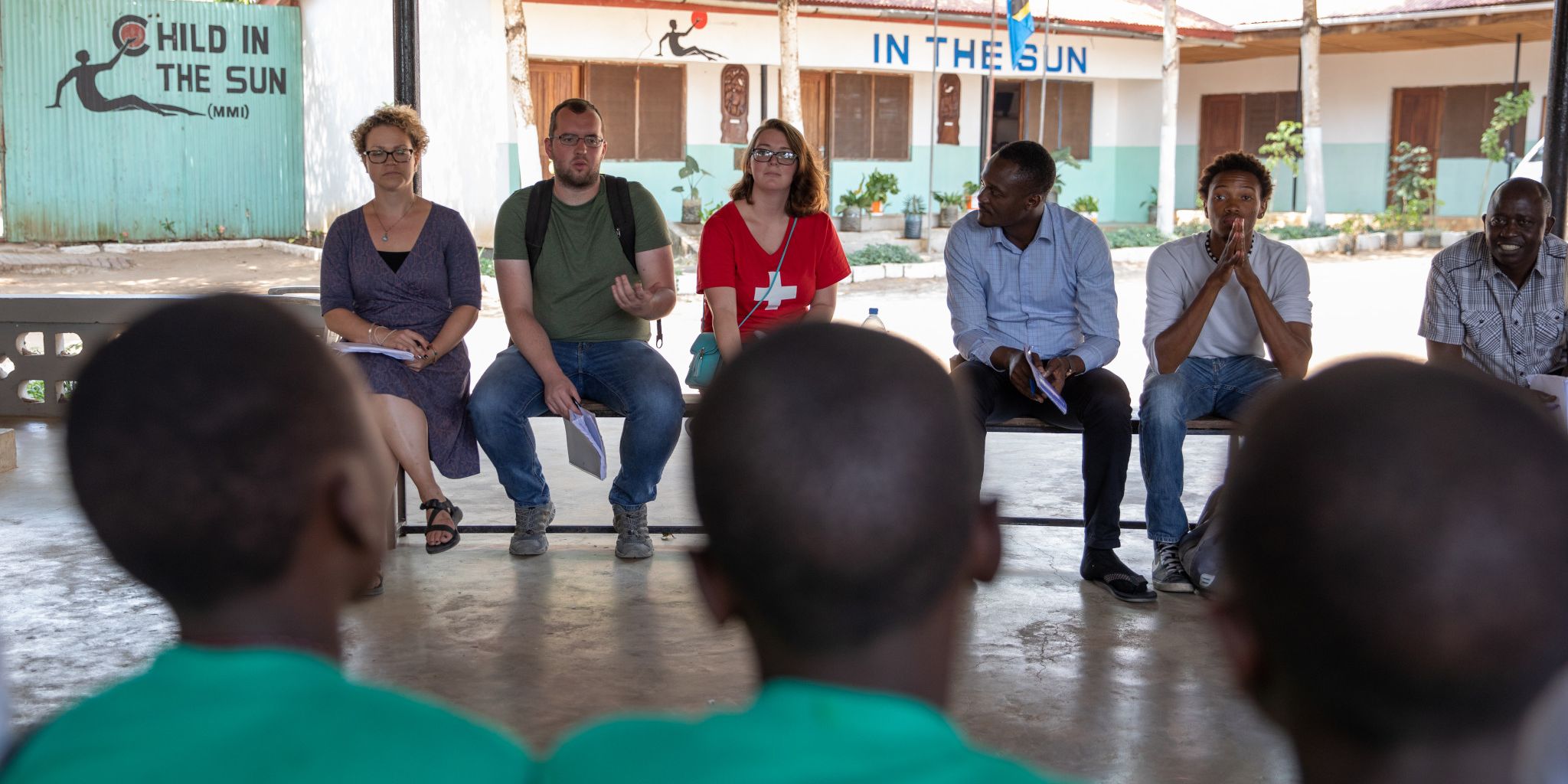
PEDDEREF seeks to integrate men and women with substance use disorders back into society, as well as treat their addictions and emotional trauma. “To me, PEDDEREF addresses questions of healing that go beyond the body, that have to do with structural inequalities, social stigmas, and gender roles and performances,” Rhine says. “I think those are valuable lessons for our students to bring back with them.”
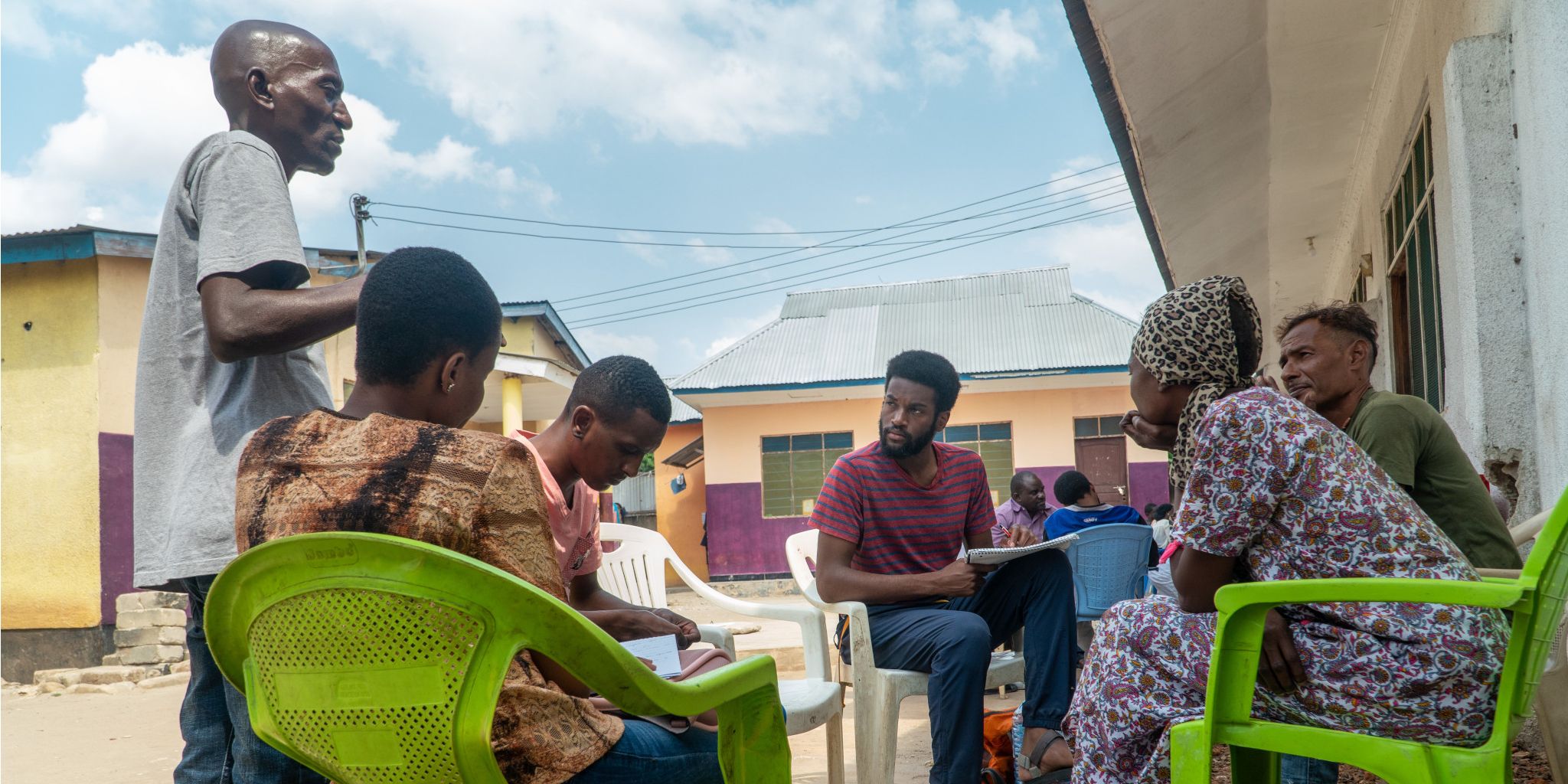
For Macie Rouse, who graduated in 2019 with a bachelor’s in anthropology, the visit to PEDDEREF was eye-opening. “I was honored that they opened their doors to us and let us see this side of Tanzania. Addiction is a deeply stigmatized issue here, so a lot of these people feel really marginalized. That they were willing to share their stories with us was inspiring.”
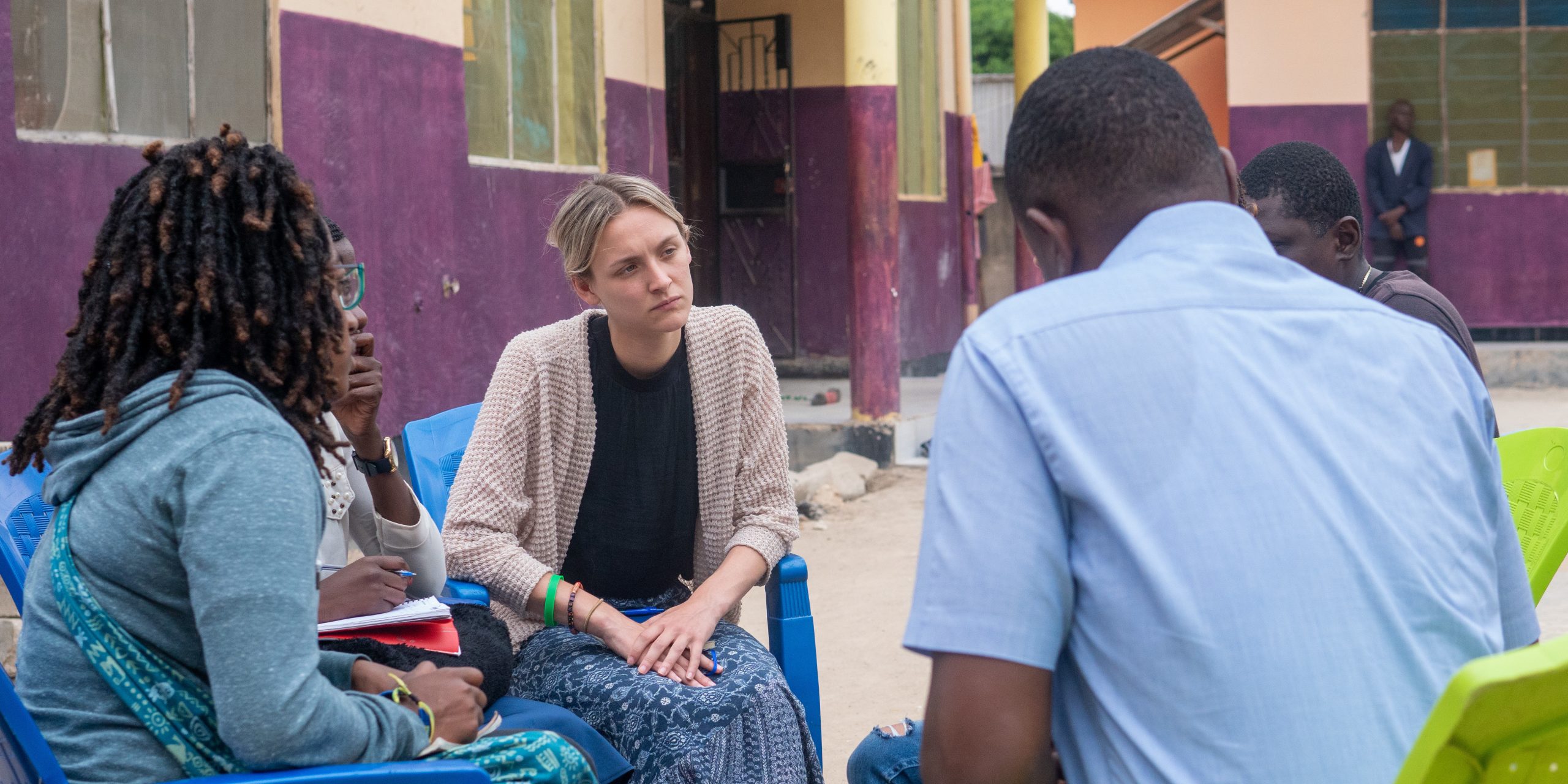
Endings and beginnings
After nearly two weeks of rigorous fieldwork and close-knit collaboration, the 2019 ColLAB field school came to an end. Many students boarded planes for the U.S. and some to other parts of the world. All planned to continue their work in academic or professional capacities. “We all went on our own journeys after the field school,” Rouse says. “Whether that meant returning to KU, starting a Fulbright, or continuing to travel within Tanzania — that’s exciting.”
For Katie Rhine, the 2019 field school was a turning point for the KU and UDSM students. “I feel a thousand percent confident that the KU students could jump on a plane tomorrow and begin a job or an exciting research project in Tanzania,” she says. “Likewise, the UDSM students could come to the U.S. and enrich and enliven the universities here.”
When asked what she’s taken away from the trip, Lia Thompson, who graduated in 2018 with a master’s in anthropology, is quick to answer. “Confidence. It’s easy to get comfortable in America. Doing research in America, or just being at an American university. But it takes courage to get on a plane, travel 20-plus hours to another country, and interact with intellectuals about topics that you know nothing about.”
Whatever the future holds for ColLAB and the field school, its significance remains clear for Rhine. “I think the approaches to human health that we take in this program hold a tremendous amount of promise,” Rhine says. “This is how social change is going to happen. This is how students are going to learn the skills that they need to make a difference in the world.”
